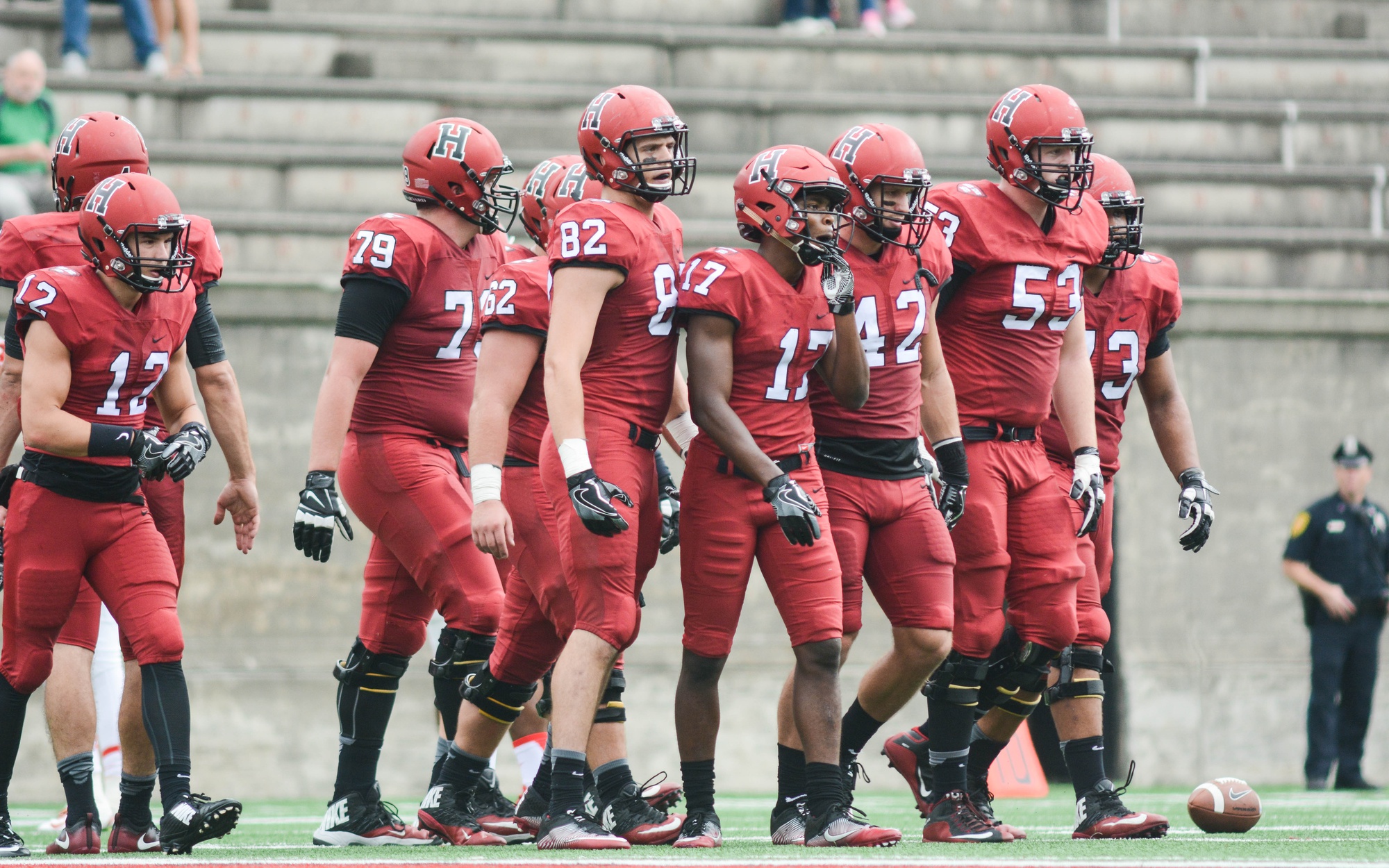
News
HMS Is Facing a Deficit. Under Trump, Some Fear It May Get Worse.

News
Cambridge Police Respond to Three Armed Robberies Over Holiday Weekend

News
What’s Next for Harvard’s Legacy of Slavery Initiative?

News
MassDOT Adds Unpopular Train Layover to Allston I-90 Project in Sudden Reversal

News
Denied Winter Campus Housing, International Students Scramble to Find Alternative Options
Football to Put Road Win Streak on Line at Holy Cross

Harvard football (4-0, 2-0 Ivy) has not lost an away game since November of 2012. Let that fact sink in.
Sixteen times the Crimson has boarded an uncomfortable bus, arrived at an unfamiliar field, and faced unfriendly fans. And in every single case, the team has left with a victory.
Harvard’s most recent road disappointment came against Penn nearly four years ago. Which means that, save for a few fifth-year seniors, no Crimson player knows the feeling of returning home after a loss. Only Ohio State boasts a longer active road streak at 19 games.
“[Winning 16 road games] is hard,” Murphy said. “How do I know it’s hard to do? Because it’s the longest road winning streak in Ivy League history. That’s how I know.”
This Saturday’s matchup at Holy Cross was supposed to challenge the run. On paper the Crusaders boasted a bulky front seven and an offense powered by an electric quarterback, senior Peter Pujals.
Heading into the 2016 season, Pujals had already put together a resume worthy of his school’s Hall of Fame. He had started for Holy Cross since freshman year and improved the team from 3-9 to 4-8 to 6-5 in consecutive seasons.
As a sophomore, junior, and senior, Pujals was elected team captain. He had landed on the All-Patriot second team in 2014 and All-Patriot League first team in 2015. Everything had seemed to portend a momentous 2016 campaign.
Then the future shattered. All it took was one snap—a benign third down late in the second quarter against Dartmouth. He limped off the field with what coaches have since characterized as a lower-leg injury. Pujals has not returned, and the Crusaders (2-4, 1-2 Patriot) have gone 1-2. Football can be a cruel sport. However, Holy Cross still possesses dangerous weapons.
In particular, wide receivers Jake Wieczorek (senior) and Richie DeNicola (sophomore) will test the Crimson secondary in a way that no one else has, with the possible exception of Brown wideouts Alex Jette and Troy Doles. Both Weiczorek and DeNicola topped 100 receiving yards in two of the Crusaders’ first three outings.
Production has slowed since Pujals’ departure, but the tandem remains dangerous. Notably Weiczorek averages 19.8 yards per punt return.
On defense, Harvard will battle these speedsters by trotting out an energetic secondary. Collectively these safeties and defensive backs refer to themselves as “knuckleheads,” a nickname that emerged after years of coaches berating mistakes in practice.
Junior safety Tanner Lee and others have adapted this identity to their own purposes—occasionally secondary members celebrate big plays by knocking on their helmets.
“We have to make sure that no balls get thrown over our head,” Lee said. “In the past few games, we’ve let a few deep balls over our heads, so that’s what we’re working on.”
Last week against Cornell, Lee grabbed two score-preventing interceptions. Such turnover dominance tends to lie at the heart of the Crimson’s success. Since 2000, the program has gone 32-0 when not coughing up the ball.
The offensive line has played a similarly crucial role. Last year’s three-peat champions sported three offensive linemen who would go on to sign NFL contracts—Anthony Fabiano, Adam Redmond, and Cole Toner.
Forced to fill these gaps, the 2016 offensive line has struggled at times but shown signs of improvement. Last week the unit opened up sizable holes, allowing junior running back Semar Smith to tally three touchdowns.
“We have tremendous potential,” junior lineman Larry Allen said. “We could be near, up to, and if not equal to the line from last year. I know that sounds ridiculous, but we can.”
And then there are the other senior presences: quarterback Joe Viviano, halfback Anthony Firkser, defensive tackle James Duberg, and defensive tackle Doug Webb. Largely thanks to the Viviano-Firkser combination, for example, Harvard sports the highest third-down efficiency rate in the FCS at 58 percent.
Any team seeking to derail Harvard’s 16-game road train must overcome these old-hand talents. Pujals or not, the Crusaders face a tall task on Saturday.
Then again, so does the Crimson in adapting itself to a new environment. As Murphy indicated, no matter how long a streak Harvard has built, winning away from home remains a challenge.
“It’s something we always talk about—embrace the things that are harder,” Murphy said. “The most important thing we do as coaches is building adversity skills. Why? Because as hard and grinding a sport as football can be, life at times can be a heck of a lot harder.”
—Staff writer Sam Danello can be reached at sam.danello@thecrimson.com.
Want to keep up with breaking news? Subscribe to our email newsletter.
